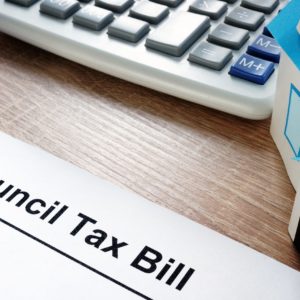
Property owners who make their properties available to rent for 140 days a year can choose to pay business rates instead of council tax. However, as a small business, they can also claim relief on this if their property has a rateable value of less than £12,000.
Properties with a rateable value between £12,000 and £15,000 may also be entitled to some exemption from business rates.
According to Colliers, the loss of revenue due to business rates relief for properties in England and Wales will come to around £170m in 2023/2024. This represents 85,044 holiday let properties.
Colliers noted that the loss is higher in the South West of England, where 13,085 new properties across Cornwall, Devon, Dorset and Somerset have claimed 100 per cent business rates relief in the last six years. The firm said this was more than double the number of properties being relieved from the tax in 2017.
There are currently 23,817 self-catering holiday let properties in the South West which are eligible for relief.
Colliers estimated that within this region alone, around £53m could be raised if council tax was charged against these properties.
The government has since revised the rules around council tax on second homes and since April this year, a property can only qualify for business rates if it proven that it was as available to rent for 140 days a year and let out for short periods amounting to at least 70 days.
Before, property owners only needed to show that they intended to let a property to qualify for business rates.
More needs to be done
Colliers said while it did not blame second homeowners for taking advantage of this tax break, the change was not enough to stop people from moving onto the business rates list and boost the revenue of local authorities.
John Webber, head of business rates at Colliers, said: “A second homeowner can still let out their property for only 10 weeks of the year and would be able to avoid paying any business rates or council tax. The fact that the number of properties entering the business rates lists is still growing, is a testament that the deterrent is not working.
“Despite posturing little has been done by the government in the last five years to properly reform the business rates system. This is especially extraordinary given the pressure on local authority finances, and the subsequent need for central government to fill any gaps.
“The local tax burden remains weighed onto residents or other types of businesses that are struggling to pay their council tax bills, which have again risen substantially in this last year. Meanwhile agents selling properties in popular domestic holiday areas positively advertise the rates savings advantages, which has probably contributed to the further rise in house prices.”
He added: “The fact that this trend of flipping from the council tax to the business rates list is growing every year is also a real cause of concern. Two years ago, we estimated the loss of income to government was £110m, last year it was £150m and this year it will be £170m. Such loss of council tax every year will soon mount up over the years, with the government increasingly needing to bail out local authorities. The government really needs to reform the whole system and do it thoroughly.”
















